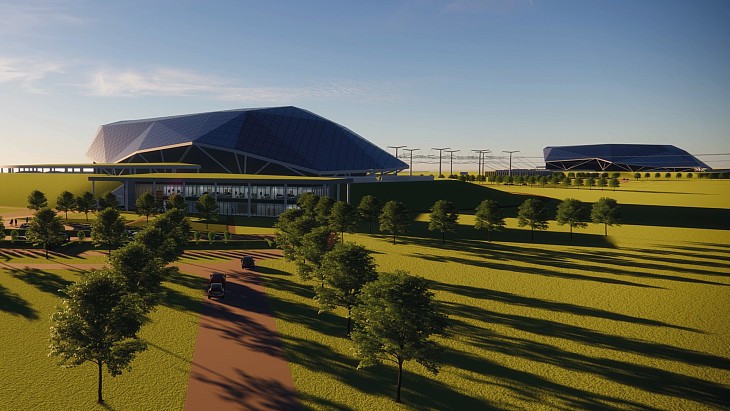"I think we all share a vision that nuclear needs to play a major role in the attainment of [energy security, sustainable development, climate targets] policy objectives," said Daniel Dean, chair of the International Bank for Nuclear Infrastructure (IBNI) Implementation Organisation Strategic Advisory Group.
"The more we make nuclear accessible, financeable and achievable in countries throughout the world, the more that nuclear will be considered as a viable option to achieve those carbon transition objectives. But we are talking about multiple trillions of dollars of investment to achieve this vision. That is a problem given the existing financing mechanisms, the existing commercial structures being utilised to deliver nuclear projects."
George Borovas, partner and head of nuclear at law firm Hunton Andrews Kurth, who chaired the session, said the financing of nuclear projects is "an issue that is dear to my heart". He said he has seen many such projects fail because of a lack of the right financial solutions. "They were good projects, great economics, great companies with great leaders. The problem was that they started looking at the financing too late. I see this happening over and over again where projects begin and then at some point they say 'Now, how are we going to finance it?' That's not the way to go about it. You have to think about the financing solution up front."
"General issues of public acceptance, reputational risk, potential controversies inevitably makes a lot of banks nervous, or at least cautious, about engaging with nuclear," said Mark Muldowney of BNP Paribas.
However, he added: "I sometimes say there are lots of bankers out there who are going to find that they want to support nuclear projects, but they don't realise that yet." Muldowney said that although there are challenges, "there are very positive signs of momentum, such as the EU nuclear taxonomy discussions, which put a positive basis for moving forward with financing new nuclear projects."
Dean said nuclear must been considered from an Environmental, Social and Governance (ESG) perspective as an investor.
"We need to establish a better basis for the ESG status of nuclear and its role in terms of net-zero and its role in energy security," he said. "That's important as that will start to aggregate stability and actually say that nuclear is something that collectively financiers want to finance."
However, he stressed that this is not just a financiers issue. "In fact, the wrong approach is to let institutions like ours to figure it out ourselves. Because what you need for that assessment is for industry collectively to put together the case why nuclear makes sense - from a policy point of view that's the government's domain - but in terms of its environmental and social impact to society. And that is something we can all play a part in."
The role of governments in nuclear projects is growing, noted Lukasz Sawicki, chief expert at Poland's Ministry of Climate and Environment, with most projects around the world being government-backed. He said the least governments can do is to ensure the regulatory structure and policies are in place.
Sawicki said the Polish prime minster earlier this week announced that the country's nuclear programme is to be expanded. "We intend to engage with more than one reactor vendor - there may even be three of them. We intend to have more than 9 GWe of capacity. So this will probably be one of the biggest new build programmes currently in Europe."
Dean said it is not just a financing issue. "It is a multidimensional problem that needs a multidimensional solution. The solution that we have created - the creation of a multilateral bank that will support nuclear investment and nuclear infrastructure all across the world - is a needed tool to achieve these objectives. We see this as a fundamental solution to addressing the many impediments that are present today and will continue to be present in the future facing the expansion of nuclear capacity globally.
"We think we have an iron-clad plan that is based on decades of experience, successful models of the existing multilateral banks."
The proposed IBNI will be based on the same model as the World Bank, European Bank for Reconstruction and Development and the Asian Development Bank, among others.
"We think this exact same model can be applied to the nuclear sector. The exact same model that has driven trillions of dollars of capital into the challenging markets in the world can be applied also to the challenging markets of nuclear to drive private sector global capital into the nuclear sector."
He added: "What a multilateral can do, through the establishment, adoption and enforcement of country-level agreements, is compel governments to make the politically-difficult decisions to reform energy markets to create more fair level playing fields for all low-carbon technologies, where nuclear can complete."

.jpg)



_19544_40999.jpg)


_66668.jpg)





